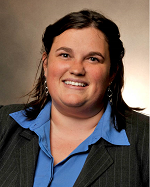An Overview of “Ag-Gag” Laws: In Arkansas and Beyond
Topic:
What are typically called “ag-gag” or “farm security” laws, depending on who you’re talking with, have become frequent topics of conversation, legislation and lawsuits in the past decade. These laws, which commonly limit photography or recordings on agricultural operations without the consent of the owner, became popular in response to numerous releases of undercover videos taken, and later published, by animal activists. This webinar will provide a basic introduction to the format of the laws in different states, as well as a discussion of the challenges and court rulings that have already shaped the conversation. It will end with a discussion of current events, including the lawsuits challenging some currently existing state laws, including Arkansas.
Participation:
This webinar was recorded on November 13, 2019. To listen to a recording of the webinar, please click here.
Presenter:
Elizabeth Rumley is a senior staff attorney at the National Agricultural Law Center in Fayetteville, Arkansas. At the Center, her primary research and scholarship focus is on legal issues in animal agriculture, and she frequently lectures on those issues and others to audiences nationwide. She has developed and is teaching a graduate/undergraduate level course on legal issues in animal agriculture at the University of Arkansas. Additionally, she teaches a course on Environmental Law in the Bumpers College. Further, she has co-taught a course covering “Animals and Agricultural Production, Law and Policy” at the University of Nebraska College of Law and the University of Oklahoma College of Law. She is licensed to practice law in Michigan, Ohio, and Oklahoma after earning her B.A. from Michigan State University, her J.D. cum laude from the University of Toledo College of Law, and her LL.M. in Agricultural Law from the University of Arkansas School of Law.
Research & Materials:
Useful resources listing passed/proposed laws**
**Links to outside organizations- information not provided by NALC
